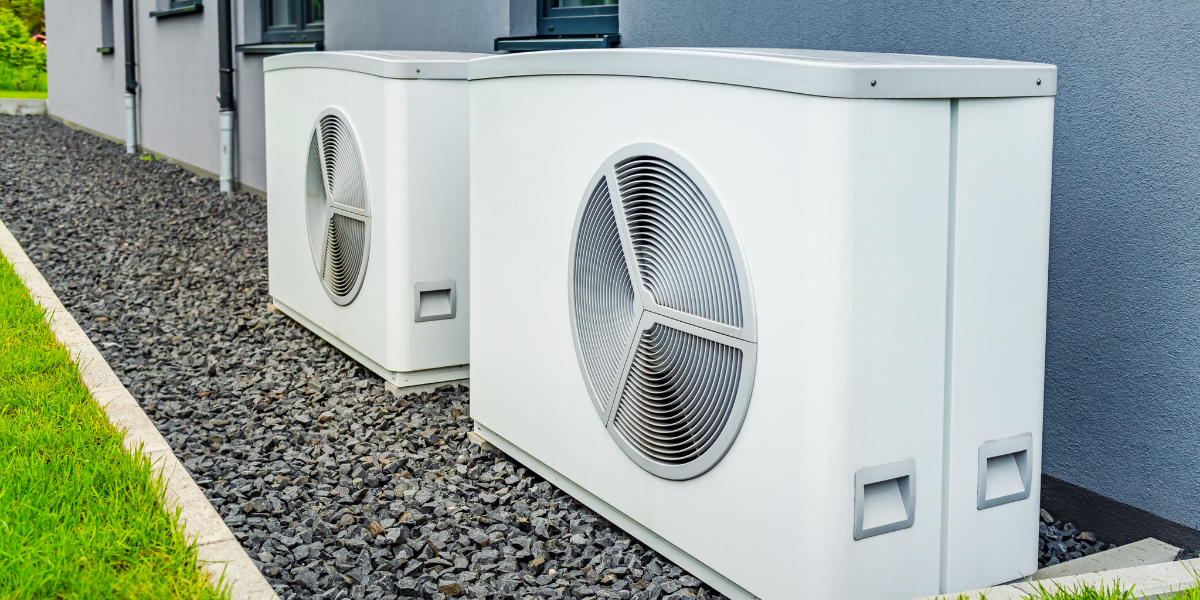In recent years, the conversation around energy consumption and its environmental impact has gained momentum. As homeowners seek ways to reduce their carbon footprint and lower energy costs, one significant consideration is the type of heating system used in their homes. The transition from gas central heating to electric heating has become a viable option for many, offering both advantages and considerations.
Electric Heating: Furnaces vs. Heat Pumps
Electric Furnaces Pros
Efficiency: Electric furnaces can achieve high levels of efficiency, especially in moderate climates. With advancements in technology, electric furnaces have become increasingly efficient, providing consistent warmth without the need for frequent adjustments.
Cost Savings: While the initial installation costs of electric furnaces may be higher compared to gas furnaces, they often result in lower operational costs over time. With fewer moving parts and reduced maintenance requirements, electric furnaces can lead to long-term savings for homeowners.
Safety: Electric furnaces eliminate the risk of carbon monoxide leaks associated with gas heating systems, providing peace of mind for homeowners and their families.
Durability: Electric furnaces typically have fewer moving parts, leading to reduced maintenance requirements and a longer lifespan compared to gas furnaces. With proper care and maintenance, electric furnaces can last for many years, providing reliable heating for the home.
Electric Furnaces Cons
Energy Source Dependence: The efficiency of electric furnaces depends on the cost and availability of electricity in a given area. While electric furnaces themselves are highly efficient, fluctuations in energy prices or disruptions in power supply can impact their performance and cost-effectiveness.
Environmental Impact: While electric furnaces produce no emissions during operation, the environmental impact of electricity generation varies depending on the source of power. In regions where electricity is generated primarily from fossil fuels, electric furnaces may contribute to greenhouse gas emissions indirectly.
Electric Heat Pumps Pros
Energy Efficiency: Heat pumps are highly efficient, as they transfer heat rather than generate it, making them ideal for both heating and cooling. By extracting heat from the air or ground outside the home and transferring it indoors, heat pumps can provide efficient heating even in cold climates.
Year-Round Comfort: Heat pumps provide heating in winter and cooling in summer, offering a versatile solution for year-round comfort. With the ability to reverse the refrigeration cycle, heat pumps can effectively cool the home during hot summer months, reducing the need for separate cooling systems.
Lower Operating Costs: Despite higher upfront costs, heat pumps can lead to significant long-term savings due to their energy efficiency. By harnessing renewable sources of heat from the environment, heat pumps can provide heating at a fraction of the cost of traditional heating systems.
Environmental Benefits: Heat pumps produce fewer greenhouse gas emissions compared to traditional heating systems, particularly if powered by renewable energy sources such as solar or wind power. By reducing reliance on fossil fuels for heating, heat pumps can help mitigate climate change and reduce air pollution.
Electric Heat Pumps Cons
Initial Cost: Heat pumps typically have a higher upfront cost compared to electric furnaces or gas heating systems. The cost of purchasing and installing a heat pump can vary depending on factors such as the size of the home, the type of heat pump selected, and the complexity of the installation process.
Climate Considerations: The efficiency of heat pumps may vary depending on climate conditions, with performance potentially decreasing in extremely cold climates. In regions with prolonged periods of sub-freezing temperatures, supplemental heating may be required to maintain indoor comfort levels, which can increase energy costs.
Maintenance Requirements: Heat pumps require regular maintenance to ensure optimal performance and efficiency. This may include cleaning or replacing air filters, inspecting and lubricating moving parts, and checking refrigerant levels. Neglecting maintenance can lead to reduced efficiency, higher energy bills, and premature system failure.
Considerations Before Making the Switch to Electrical Heating
Before transitioning from gas central heating to electric heating, homeowners should carefully consider several factors to ensure the best possible outcome for their home and budget:
Energy Costs: Evaluate the cost of electricity versus natural gas in your area to determine potential savings. While electric heating options may offer lower operational costs in some regions, it’s essential to compare energy prices and consumption rates to make an informed decision.
Home Insulation: Ensure your home is well-insulated to maximize the efficiency of electric heating systems. Proper insulation can help reduce heat loss and minimize energy waste, resulting in lower heating bills and improved comfort.
Climate: Consider your local climate and how it may affect the performance of electric heating options, particularly heat pumps. While heat pumps are designed to provide efficient heating in a wide range of climates, extreme temperatures or weather conditions may impact their effectiveness.
Energy Efficiency: Look for Energy Star-rated appliances and consider renewable energy options to further reduce environmental impact. Investing in energy-efficient appliances and renewable energy sources can help lower energy bills, reduce greenhouse gas emissions, and support sustainable living practices.
Installation and Maintenance: Research reputable HVAC contractors experienced in installing and maintaining electric heating systems. Proper installation and regular maintenance are essential for maximizing the performance, efficiency, and lifespan of electric heating equipment. Be sure to obtain multiple quotes and ask for references before selecting a contractor to ensure quality workmanship and customer satisfaction.
CaliforniAir Can Make the Transition Easier
At CaliforniAir Heating & Air Conditioning, we understand the importance of transitioning to more sustainable heating solutions. Our team of experienced professionals can assist homeowners in converting their gas-powered HVAC equipment to electric alternatives. From installation to maintenance, we provide comprehensive services to ensure a smooth transition to electric heating. Contact us today to learn more about our services and schedule a consultation with one of our experts.
Frequently Asked Questions About Switching From Gas Central Heating to Electric Heating
While initial costs may vary, electric heating options often result in long-term savings due to higher efficiency and lower operational costs.
Electric heating produces no direct emissions, and its environmental impact depends on the source of electricity. Utilizing renewable energy sources can further reduce environmental impact.
Regular maintenance, such as filter changes and system inspections, is essential to ensure optimal performance and efficiency of electric heating systems.
In many cases, existing ductwork can be utilized with electric heating systems, although modifications may be necessary depending on the specific system being installed.
The time to recoup the initial investment in electric heating varies depending on factors such as energy costs, system efficiency, and usage patterns, but many homeowners experience savings over time.

